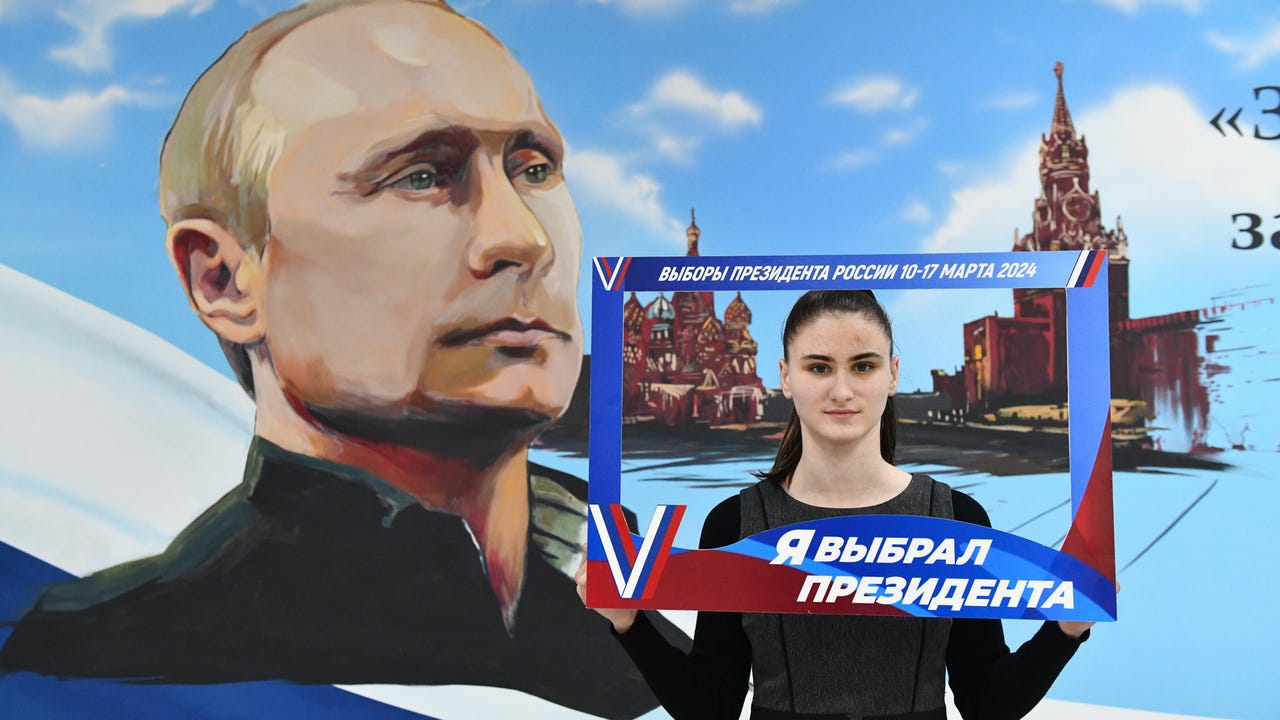Russia will hold presidential elections on March 15-17, aiming to win in the absence of real opponents Wladimir Putin to obtain a new successful six-year mandate and consolidate its legitimacy, despite the problems raised by the offensive in Ukraine.
Below are five important facts about the Russian presidential election.
1. No contradiction
The only candidates who are against the conflict in Ukraine are like the Liberals Boris Nadezhin and Ekaterina Duntsovasupported by the signatures of tens of thousands of Russians, were officially excluded from participation due to errors in their files.
In addition to Putin, three candidates were admitted: the nationalist Leonid Slutskythe communist Nikolai Kharitonov and the businessman Vladislav DavankovThey all support the military operation in Ukraine.
According to government critics, the participation of these three fake opponents serves to channel the discontent of parts of Russian society and give the vote a pluralistic veneer, while the real opposition has been crushed by years of repression.
Opponents say authorities have multiple tools at their disposal to control the results: manipulating votes cast online and remotely, stuffing ballot boxes, falsifying post-count counts and pressuring millions of officials across the country to vote for the government .
Yulia NavalnayaWidow of opposition activist Alexei Navalny, called on her supporters to gather at polling stations at the same time and vote for “any candidate except Putin” or have their ballot invalidated by the large inscription “Navalni”.
2. Putin’s promise
Although the result leaves no room for doubt, the authorities are actively involved in the campaign. The aim is to strengthen Putin’s legitimacy inside and outside the country and to show that he enjoys massive electoral and social support.
Putin has stepped up his media appearances in recent weeks, be it with students, in factories or as the commander of a nuclear deterrent bomber.
However, Putin will not take part in any election debates, something he has never done since he came to power a quarter of a century ago.
But in late February, in his annual address to the nation, he made a long series of announcements promising billions of rubles to modernize infrastructure, combat poverty and population decline or even digitize the country. At least a presidential program until 2030.
3. Socio-economic concerns
Although the Russian economy has proven more resilient than expected to several Western sanctions, many Russians are concerned about rising prices and, more broadly, the destabilization caused by the election campaign in Ukraine.
Personnel problems are compounded as thousands of young men die or go to the front and hundreds of thousands flee abroad because they oppose the conflict or fear being drafted into the army.
In recent months, authorities have been concerned about demonstrations by soldiers’ wives demanding their return from the front, despite promises of large sums of money and benefits to military families.
4. Multiple incentives
Posters calling for patriotism among Russians appear in public spaces in order to encourage them to vote. They bear a V, one of the symbols of the Russian Armed Forces in Ukraine, and the motto “Together we are stronger, let’s vote for Russia!”
As usual, authorities will hold raffles with prizes and shows to encourage voters to go to the polls, in a country where distrust of politics is high, especially among young people.
At the same time, Ukraine and its Western allies are portrayed as potential troublemakers. Putin warned against this in December “Foreign interference” in the vote and promised a “tough answer”.
5. Voting in occupied territories
The elections will also take place in the Ukrainian territories occupied by Moscow since 2022, a paradox for the Russian authorities, who want to project an image of normality while simultaneously dealing with a high-intensity conflict.
Kiev says residents of these areas were subjected to threats and violence to persuade them to vote, something Moscow denies. Russian soldiers sent there were able to cast their votes in early elections.
